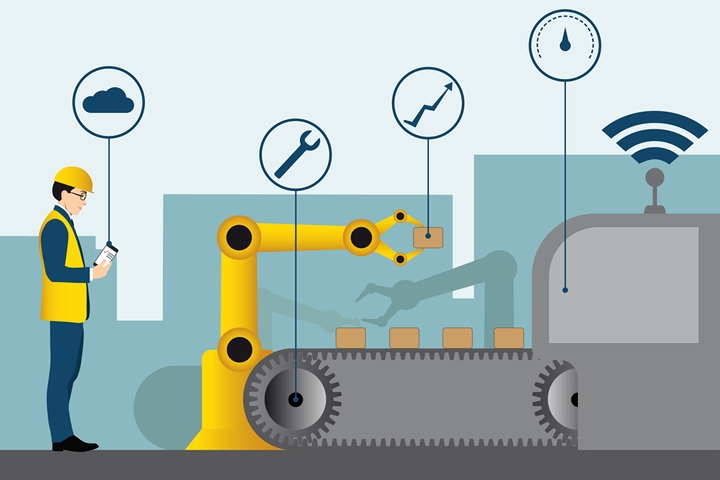What Is the Difference between Wi-Fi and Industrial Wireless Networks?
Traditional wireless technologies like Wi-Fi, while great in consumer environments, often fall short of meeting the stringent requirements of industrial settings and specific factory automation applications and machine deployments.
Private 5G Connectivity and AI Technologies Accelerate the Transformation From Automation to Autonomy
This article looks at private 5G (known as P5G) and how it supports advanced and emerging technologies, including AI cameras, enabling manufacturers to drive more functionality closer to the edge.
Envisioning the 6G Future
If we're learning anything from 5G implementations, it's that the demand for connectivity is increasing at an exponential rate as wireless communication is becoming more and more essential to our daily lives.
Readers Choice 2020: Using Mesh Network Applications for Robotics
Many companies make mesh network products for home Wi-Fi systems. Those are indeed valid and popular applications, but there are ample opportunities to use mesh networks for robotics, too.
Qualcomm Launches World's First 5G and AI-Enabled Robotics Platform
The Platform Facilitates Accelerated Development of Innovative, Power-Efficient, High Computing Robots and Drones for Enterprise, Industrial and Professional Service Applications.
5G and New Industrial Use Cases
How can industrial equipment companies keep pace with the push to economize
and modernize, to be more data-centric, and to provide safety and security in the
face of constant innovation?
How Verizon 5G is Powering the Future of Robotics
5G, especially when combined with MEC (Mobile or Multi-access Edge Compute), can fundamentally change robotics. With massive and low-latency connectivity, robots can offload their computing and intelligence to edge servers that have much greater capacity and scalability.
Records 1 to 7 of 7
Featured Product

Precision Drive Systems - Trust PDS for 3-5 Day Robotic Spindle Repair
Precision components machined by CNC robot machining systems require compact, lightweight, and high-speed motorized spindles capable of delivering higher efficiency, performance, and reliability than those used in many other industries. That's why manufacturers of milling, cutting, trimming, grinding, polishing, and deburring trust Precision Drive Systems (PDS) to provide accurate and dependable spindle repair to perform to the most exacting standards.
Robotics and Automation - Featured Company

Harmonic Drive LLC
Harmonic Drive LLC (HDLLC) designs and manufactures precision servo actuators, gearheads and gear components. Harmonic Drive® gears play critical roles in robotics, medical diagnostics and surgical robotics. We work with industry-leading customers and companies of all sizes to provide both standard product and custom-engineered solutions. The majority of the products sold by HDLLC are proudly made at our US headquarters and manufacturing facility in Massachusetts.







